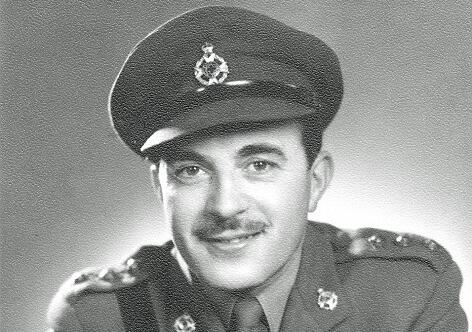Captain Leslie Skinner was an army chaplain during the Second World War who played a large role during the beach landings of Normandy in 1944. As soldiers were wounded and nearly killed, the Methodist minister did all he could to save or at least lengthen their lives. Captain Skinner kept numerous journals during his war service, and now the writings of the army chaplain have been made public leading up to D-Day’s seventieth anniversary.
Skinner ministered to numerous troops on the front lines during his period of service in the war, and he also helped out the medical teams whenever possible. But he also did his fair share of work for the deceased. The army chaplain could not bear to leave his fallen comrades lying slapdash across the beach, nor could he allow the survivors’ spirits to be broken by the sight of their bodies. He therefore spent rough hours dodging gunfire as he sought out Allied corpses and dug them graves to ensure them proper burials.
The Sherwood Rangers Yeomanry, the regiment in which Captain Skinner took part, lost over one hundred and fifty men in the year following the Normandy landings. Some of the remains were easier to bury than others. The army chaplain wrote of at least one experience in which burial was impossible, as three men had melted into their destroyed tank. Skinner was disgusted by the sight, not to mention the warfare which created it, the Mail Online reports.
Despite his harrowing experiences dodging gunfire from enemy rifles, Skinner occasionally found the opposing German forces to be reverent towards his efforts. He details one account in particular in which a German tank watched the army chaplain and another priest led a funeral procession without interruption. It would have been easy to mount an attack, but they allowed Skinner to continue on his mission of seeking out bodies and writing to the families of the lost.
The army chaplain Captain Skinner faced many times which were emotionally trying during his efforts to show respect for his fallen comrades. He also found times which were uplifting. Some of the families to which he had to write about the deaths of so many soldiers went on to keep Skinner in their thoughts and prayers, and they kept up communications for quite some time thereafter. Now the D-Day museum in Cambridge, the Normandy Experience, is displaying the journals of the army chaplain so that all may experience his inspiring story.
